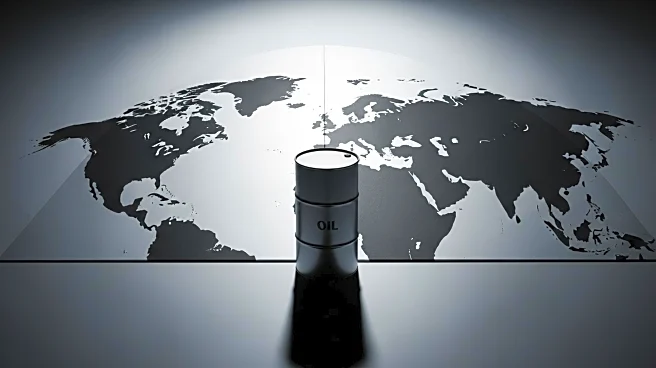What is the story about?
What's Happening?
The European Union was poised to introduce its 19th sanctions package against Russia, aimed at increasing economic pressure on President Vladimir Putin to cease his military actions in Ukraine. However, the rollout was postponed following President Trump's intervention. Trump, via his social media platform Truth Social, insisted that NATO countries must cease purchasing Russian oil before he would support further sanctions. This demand has delayed the E.U.'s plans, as they seek to align with Trump's conditions. Ursula von der Leyen, President of the European Commission, acknowledged Trump's stance and indicated that the E.U. would work towards phasing out Russian fossil fuel imports. Despite the delay, the E.U. remains committed to presenting the sanctions package, which targets banks, energy, and the cryptocurrency sector.
Why It's Important?
The delay in implementing new sanctions against Russia highlights the complex geopolitical dynamics at play. President Trump's influence underscores the significant role the U.S. plays in shaping international policy, particularly in the context of NATO and its response to Russian aggression. The situation also reveals the challenges faced by European nations in balancing energy needs with political and ethical considerations. Countries like Hungary and Slovakia, which continue to import Russian oil, are under scrutiny, and their leaders' alignment with Trump adds another layer of complexity. The broader implications for U.S.-E.U. relations and the ongoing conflict in Ukraine are significant, as the delay may impact the effectiveness of international efforts to pressure Russia.
What's Next?
The European Union is expected to continue negotiations to align its sanctions strategy with President Trump's demands. This may involve diplomatic efforts to persuade Hungary and Slovakia to reduce their reliance on Russian energy. Additionally, the E.U. will likely explore alternative energy sources to mitigate the impact of phasing out Russian imports. The situation also calls for increased coordination between the U.S. and E.U. to present a united front against Russia. The outcome of these efforts will be crucial in determining the next steps in the international response to the conflict in Ukraine.
Beyond the Headlines
The delay in sanctions raises questions about the balance of power within international alliances and the influence of individual leaders on global policy. The situation also highlights the ethical considerations of energy dependency and the geopolitical leverage it provides to countries like Russia. The ongoing conflict in Ukraine and the international community's response may lead to long-term shifts in energy policies and alliances, as nations seek to reduce their vulnerability to geopolitical pressures.


















